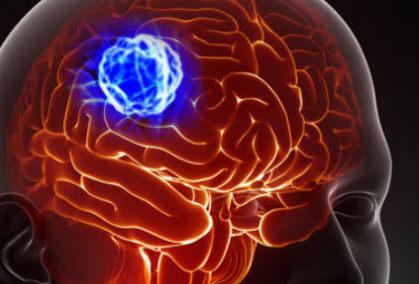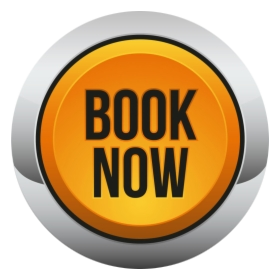
Best Doctor for Stroke and Epilepsy Treatment in South Mumbai
Stroke
A stroke occurs when the blood supply to part of the brain is interrupted or reduced, leading to a lack of oxygen and nutrients. This causes brain cells to die or become damaged, potentially resulting in permanent disability or death. The severity of a stroke depends on the location and extent of brain damage.
Types of Stroke
1. Ischemic Stroke: This is the most common type of stroke, caused by a blockage or narrowing of blood vessels, often due to a blood clot. It accounts for about 85% of all strokes.
2. Hemorrhagic Stroke: This type occurs when a blood vessel in the brain bursts, leading to bleeding in or around the brain.
3. Transient Ischemic Attack (TIA): Often called a "mini-stroke," a TIA occurs when there is a temporary blockage of blood flow to the brain. Symptoms are similar to a stroke but usually resolve within minutes to hours.
Symptoms of Stroke
Symptoms can vary depending on the area of the brain affected. Common signs of a stroke include:
• Sudden numbness or weakness in the face, arm, or leg (especially on one side of the body)
• Sudden confusion, trouble speaking, or difficulty understanding speech
• Sudden trouble seeing in one or both eyes
• Sudden trouble walking, dizziness, loss of balance, or coordination
• Severe headache with no known cause
Causes of Stroke
• Atherosclerosis: Hardening of the arteries due to the buildup of fatty deposits (plaques), which can obstruct blood flow.
• Blood Clots: Clots can form due to certain medical conditions (e.g., atrial fibrillation, heart disease) and travel to the brain, causing a blockage.
• High Blood Pressure: Chronic high blood pressure can weaken blood vessels, increasing the risk of stroke.
• Smoking and Alcohol: Both smoking and excessive alcohol consumption increase the risk of stroke.
• Diabetes: Diabetes can damage blood vessels over time, contributing to the risk of ischemic stroke.
• Genetics and Family History: A family history of stroke may increase the likelihood of experiencing one.
Stroke Treatment
The treatment for stroke depends on the type of stroke:
1. Ischemic Stroke:
• Thrombolytics: Medications like tissue plasminogen activator (tPA) can dissolve blood clots, restoring blood flow if given within a few hours of the stroke.
• Mechanical Thrombectomy: A procedure in which doctors remove the clot using a catheter.
• Antiplatelet and Anticoagulants: Drugs that help prevent further clot formation.
2. Hemorrhagic Stroke:
• Surgical Intervention: Surgery may be necessary to remove blood clots or repair ruptured blood vessels.
• Medications: To control bleeding and reduce pressure on the brain.
Epilepsy
Epilepsy is a neurological disorder characterized by recurrent and unprovoked seizures. A seizure is a sudden surge of electrical activity in the brain that causes temporary disturbances in behavior, movement, or consciousness. Epilepsy is diagnosed when a person experiences two or more unprovoked seizures.
Symptoms of Epilepsy
The symptoms of epilepsy depend on the type of seizure and the area of the brain affected. General symptoms can include:
• Recurrent, involuntary movements like jerking or twitching
• Sudden loss of consciousness or awareness
• Staring spells (absence seizures)
• Uncontrolled shaking or convulsions (tonic-clonic seizures)
• Temporary confusion or memory lapses
Causes of Epilepsy
• Brain Injury: Traumatic brain injuries from accidents, falls, or sports can lead to the development of epilepsy.
• Genetic Factors: Some forms of epilepsy run in families, and genetic mutations can make a person more prone to seizures.
• Infections: Certain infections, such as meningitis or encephalitis, can cause brain inflammation, increasing the risk of epilepsy.
• Stroke or Brain Tumors: A stroke or brain tumor can alter the brain’s electrical activity, leading to seizures and epilepsy.
• Developmental Disorders: Conditions like autism or cerebral palsy can increase the risk of epilepsy in children.
• Metabolic Issues: Imbalances in electrolytes or low blood sugar can provoke seizures.
Epilepsy Treatment
The goal of epilepsy treatment is to prevent seizures. Common treatments include:
1. Antiepileptic Drugs (AEDs): Medications are the primary treatment for epilepsy. AEDs help control the electrical activity in the brain to prevent seizures.
2. Surgery: In cases where medications do not control seizures, surgery may be considered. Surgical options include removing the part of the brain responsible for seizures or implanting a device (vagus nerve stimulation or deep brain stimulation) to regulate brain activity.
3. Ketogenic Diet: For children who don’t respond to medications, a ketogenic diet (high-fat, low-carbohydrate) may help reduce seizure frequency.
4. Lifestyle Modifications: Getting adequate sleep, managing stress, and avoiding seizure triggers can help control epilepsy.
Conclusion
stroke and epilepsy are serious neurological conditions that require prompt diagnosis and treatment. While they have distinct causes and symptoms, there can be an overlap, particularly when a stroke results in seizures. Early intervention is crucial for both conditions to minimize brain damage, improve recovery outcomes, and enhance quality of life. If you or someone you know is at risk for either stroke or epilepsy, seeking medical advice and appropriate treatment is essential.
For those in need of expert care, Best Doctor for Stroke and Epilepsy Treatment in South Mumbai, Dr. Siraj Khan is a highly skilled specialist offering advanced treatments and personalized care for these conditions.

